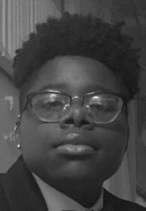|
Government Lies, Corruption and Mismanagement

The New York City Public School System is Sadly Racially Divided
In New York City public schools, if you are too fat, too skinny, too Black, too white, if your language is not English, and you do something by accident, or you don't do anything by accident, you will be terminated from your job, bullied, mobbed, made fun of and harassed until you just cannot take it anymore. Everyone sees it, parents do not know what to do about it, educators/teachers can't do anything about it, and administrators and those in management of the City schools won't do anything to change current policies. Why? Because the NYC Department of Education is never wrong. Making changes to anything means that the Department would be admitting guilt. by Editor Betsy Combier
From Editor Betsy Combier:
In New York City public schools, if you are too fat, too skinny, too Black, too white, too "something else"...if your language is not English, and you do something by accident or you don't do something by accident, you will be terminated from your job, bullied, by your peers, mobbed, made fun of and harassed ,until you just cannot take it anymore. Everyone sees it, parents do not know what to do about it, educators/teachers can't do anything about it,and administrators and those in management of the City schools won't do anything to change current, mostly clandestine, policies. Why? Because the NYC Department of Education is never wrong. Making changes to anything means that the Department would be admitting guilt. Editor Betsy Combier Editor, ADVOCATZ.com Editor, ADVOCATZ blog Editor, Parentadvocates.org Editor, New York Court Corruption Editor, NYC Rubber Room Reporter Editor, NYC Public Voice Editor, National Public Voice Editor, Inside 3020-a Teacher Trials NYC Wants the Chancellor Fired. Now. Gulino v. Board of Education Litigation Former Queens Principal Minerva Zanca is the Subject of a Federal Racial Discrimination Lawsuit Filed By US Attorney Preet Bharara Feds Sue City Education Department Over 'Racist' Principal New report finds work-based learning gap in city schools Michael Elsen-Rooney By MICHAEL ELSEN-ROONEY NEW YORK DAILY NEWS | JAN 19, 2020 | 12:01 AM Internships have played an important role in 16-year-old Latoya Beecham’s high school experience. The sophomore at H.E.R.O. High School in the Bronx, who dreams of being a pediatrician, spends Saturdays learning from medical professionals and has been working closely with her school’s internships coordinator to land a paid summer job working with kids. “I’m learning while I’m getting paid,” she said. “I feel like that’s very essential.” She was shocked her childhood friend at a different high school told her she had no idea how to land an internship. “I never knew that other schools didn’t get that,” Beecham marveled. But a new report from the nonprofit Here to Here suggests Beecham’s school may be more the exception than the rule. In interviews with 17 high-schoolers from across the city, researchers found students at mostly low-income schools reported fewer opportunities to take their learning out of the classroom than peers at schools with wealthier students, according to the report. “I feel like there’s a disparity of opportunities in communities of color for internships and careers that are not like electricians or plumbers," one student told the study authors. “But there’s not that many opportunities for internships in law, medical accounting. There’s a big disparity.” Students from wealthy families already have a leg up looking for high school internships because they’re more likely to have family connections in a range of industries, authors said. New York’s stratified public school system, where wealthier students are clustered in a small number of high schools, can heighten that divide, said report author Lazar Treschan. At Beacon High School in Hell’s Kitchen, where 36% of students are poor, compared with 73% citywide, “we get so many opportunities,” said junior Toby Paperno. “Every week the college counselors send out an email containing like 20-30 different opportunities,” Peperno said, including paid internships and pre-college programs. It’s often those experiences, more than classes themselves, that help students “learn who they are and what they care about,” Treschan wrote, and become the basis for college essays and resumes. Damaris Mercado, the Work-Based Learning Coordinator at Bronx International High School, has watched newly arrived immigrant students blossom in the school’s expanded internship program. “When I first started they were terrified to speak to a stranger,” Mercado said. “Now they realize their value.” [More Education] NYC Education Dept. due for shortage of more than 1,000 seats for preschoolers with disabilities: analysis » Treschan said the city can build on its existing programs to expand access to internships. The city’s Summer Youth Employment Program already gives tens of thousands of high-schoolers paid summer jobs each year, and Treschan suggests broadening the effort into the school year. He also proposes bringing a work-based learning coordinator to all 450 high schools and piloting a central “work-based learning for all" initiative similar to the Education Department’s “AP For All” and “College For All” efforts. Education Department spokeswoman Danielle Filson said students are getting “the important, technical skills they need to succeed outside the classroom.” “We have 462 employers hosting interns this school year alone, and we are expanding our Career Ready Summer Youth Employment Program over the next three summers to reach 20,000 students,” she added. "We thank Here to Here for their advocacy around this issue and urge more employers to partner with us and open more doors for our kids.” |
|||||||||||
© 2003 The E-Accountability Foundation![]()

